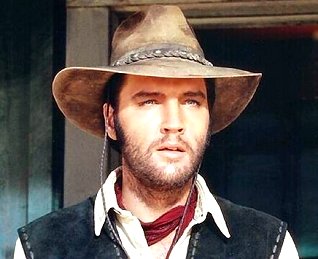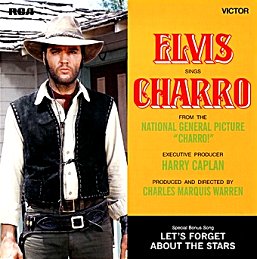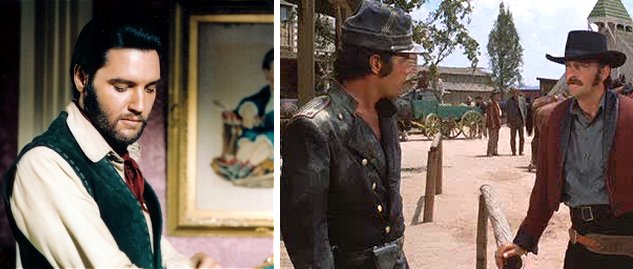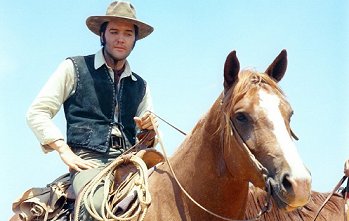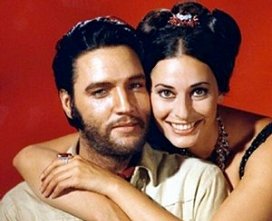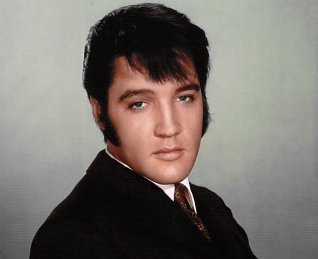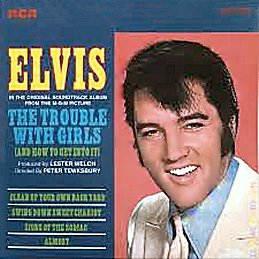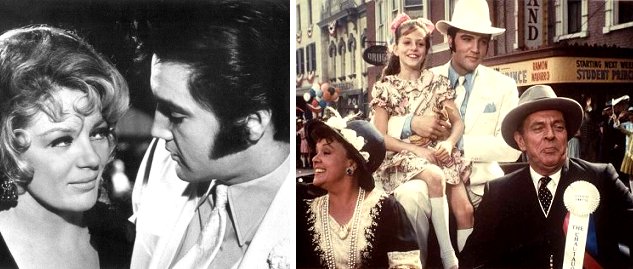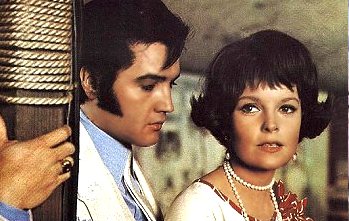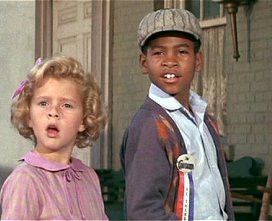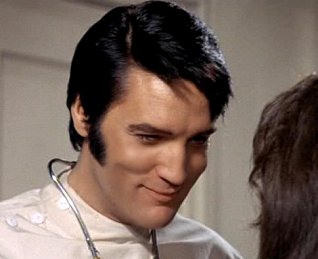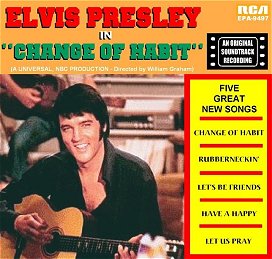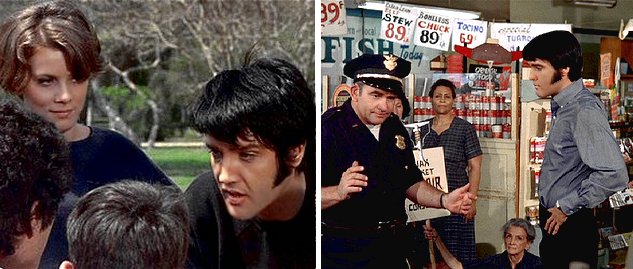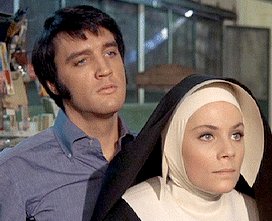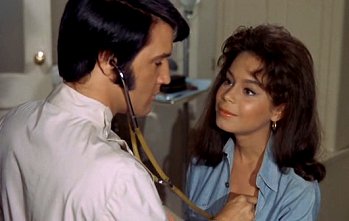|
Cast:
Elvis Presley (Jess Wade), Ina Balin (Tracey Winters), Victor French (Vince
Hackett), Barbara Werle (Sara Ramsey), Solomon Sturges (Billy Roy Hackett),
Lynn Kellogg (Marcie), Paul Brinegar (Opie Keetch), Harry Landers (Heff),
Tony Young (Lt. Rivera), James Almanzar (Sheriff Ramsey), Charles H. Gray
(Mody), John Pickard (Jerome Selby), Garry Walberg (Martin Tilford), Duane
Grey (Gabe), Rodd Redwing (Lige), J. Edward McKinley (Henry Carter), Robert
Luster (Will Joslyn), James Sikking (Gunner).
Story:
Jess Wade, an ex-member of an outlaw gang led by
Vince Hackett, is fooled into believing that Tracey Winters, an old flame
of both his and Vince's, wants to meet him again in a run -down Mexican
saloon. Seeing Vince's younger brother, Billy Roy Hackett, urging Vince
and some other gang members into the saloon he realises that he has been
tricked and warns everyone to get out before a gunfight starts. He tries
to escape but is stopped at the door by an outlaw called Gunner, disarmed
and forced to return with them to their mountain hideout. He is told by
Vince that word has been put about that Jess is the one responsible for
the theft of a historical and valuable gold-plated cannon that was used
by Emperor Maximilian in the battle against Mexican leader Benito Juarez,
although it is Hackett and his gang who actually stole it. Further 'evidence'
is provided by branding Jess's neck as he was supposed to have been shot
by one of the guards, according to the 'wanted' poster. The gang abandons
Jess to his outlaw fate and make their getaway, planning to ransom the
cannon to the town it was stolen from, also using its firepower in the
meantime, and it seems that only Jess can foil their plans.
Notes:
Working titles: 'Jack Valentine', 'Johnny Hang' and 'Come Sundown, Come
Hell'. The role
of Jess Wade was originally offered to Clint Eastwood and the script was
dramatically changed before Elvis got it. Elvis sports a beard and performs
(himself) some half-way decent action stunts in this non-musical dramatic
offering. The acting is, in places, pretty fair and would probably have
been even better had the film not been yet another 'rush' job. Interesting
and unique. This is the only one of his movies in which Elvis doesn't
sing. There is a nude scene where Ina Balin gets out of a bath-tub, which
is rarely seen, and is not usually in edits made for television or recordings.
'Charro', Jess's nickname, translates as 'singer',
particularly the lead singer of a mariachi band.
Songs:
Only one..........
the title theme - 'Charro!' (written
by Billy Strange and Mac Davis)
Also see Bill Harry's Sixties: 'Charro!'
|






